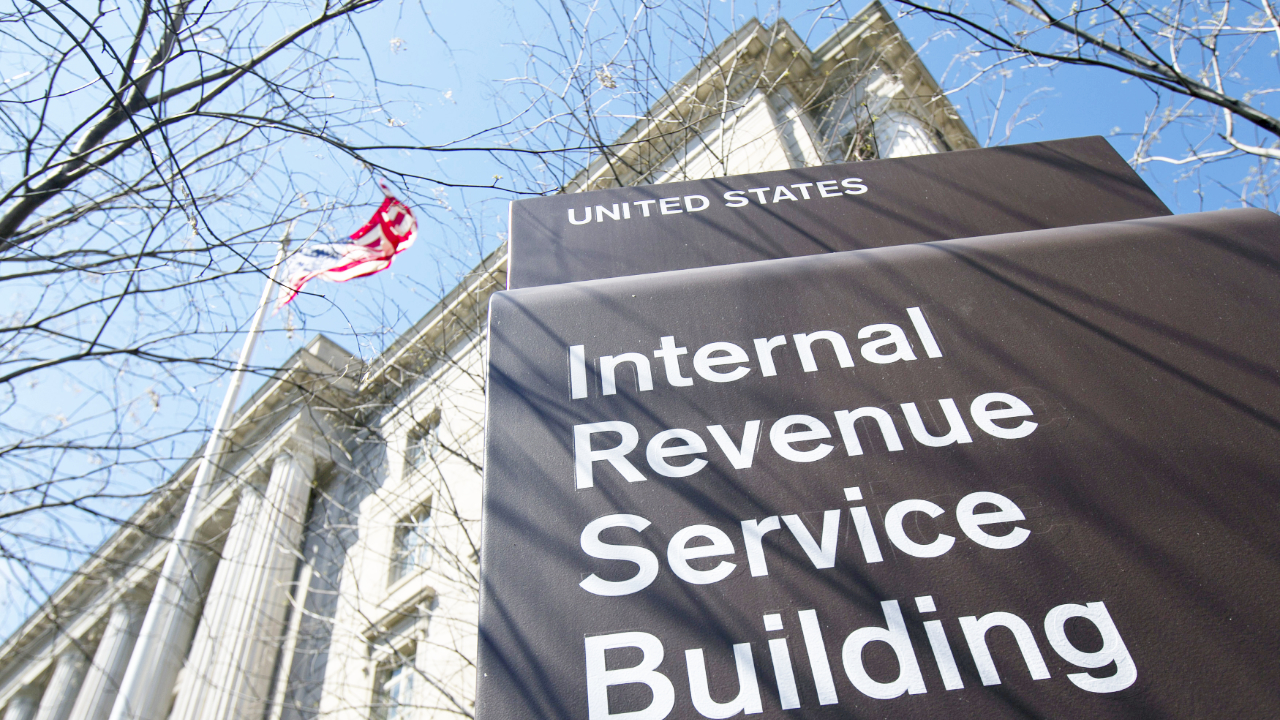[ad_1]


Bitcoin investor Jim Harper has sued the U.S. Internal Revenue Service (IRS), its commissioner, and a number of federal agents. He alleged that they unlawfully seized his private financial information from three cryptocurrency exchanges.
Bitcoin Investor vs. IRS
Bitcoin investor Jim Harper has filed a lawsuit against IRS Commissioner Charles P. Rettig, the IRS, and “John Doe IRS Agents 1-10.” The latter refers to “fictitious names for the person or persons who authorized and conducted the search” of his private financial records, according to the court document filed on July 15 with the District Court for the District of New Hampshire. A jury trial is demanded.
The document outlines three counts of violations. The first is a “violation of the Fourth Amendment of the U.S. Constitution” as “the defendants conducted an unlawful search and seizure” of the plaintiff’s private financial information. The second is a violation of the Fifth Amendment as “the defendants violated due process protections in seizing” the plaintiff’s private financial information. The third is a violation of 15 U.S.C. § 7609(f) as the defendants obtained the plaintiff’s “financial records through an unlawful John Doe subpoena.”
The complaint detailed that Harper opened an account with Coinbase in 2013. He stopped accumulating new bitcoin and began liquidating his investments at Coinbase and transferred his remaining holdings to a hardware wallet in 2015. By early 2016, he no longer had any bitcoin at Coinbase. From 2016, he liquidated his bitcoin through either Abra or Uphold exchanges. He claimed to have properly declared and paid all applicable taxes on his bitcoin gains.
The IRS filed the infamous ex parte “John Doe” administrative summons on Coinbase in 2016, seeking information on U.S. persons who conducted crypto transactions between Jan. 1, 2013, and Dec. 31, 2015. Coinbase protested and the IRS narrowed its demand, seeking instead information regarding accounts with at least the equivalent of $20,000 in crypto transactions in any one year during the above period. When the exchange refused to comply, the IRS petitioned to enforce the summons against Coinbase. According to Coinbase, this means information on 8.9 million transactions and 14,355 account holders.


On August 9 last year, Harper received a letter from the IRS informing him that his financial records related to ownership of bitcoin had been obtained by Defendant IRS without any particularized suspicion of wrongdoing.
“Upon information and belief, John Doe IRS Agents 1 through 10 issued an informal demand for Mr. Harper’s financial records to Abra, Coinbase and/or Uphold, with which one or more of the exchanges complied,” the court document reveals. The three companies violated their respective terms of service in providing Harper’s financial records to the IRS “without a valid subpoena, court order, or judicial warrant based on probable cause.” Harper claims that he never received any notice of a third-party summons from the IRS.
The IRS issued more than 10,000 similar letters to taxpayers concerning their virtual currency transactions, advising them to pay back taxes by filing amended returns. The Taxpayer Advocate Service recently said that the IRS letters undermined the rights and protections of American taxpayers. The court document states:
As with Mr. Harper, upon information and belief, IRS obtained private financial records for the targeted taxpayers without first obtaining a judicial warrant or a lawful subpoena or other court order.
Furthermore, the IRS continues to hold the plaintiff’s private financial records that it obtained from Abra, Coinbase, and Uphold.
The New Civil Liberties Alliance (NCLA), a nonpartisan, nonprofit civil rights group, represents Harper in this lawsuit. “Mr. Harper’s ‘crime’? Holding a bitcoin wallet,” the company wrote in its statement released on Wednesday.
“The expectation is that when you enter into an agreement with a third party, the third-party and the government will respect contractual rights,” NCLA’s statement adds. “But the law in this case has departed from cherished Constitutional principles and the fundamental understanding that prohibited peeking into a person’s private papers without the use of a judicially-approved subpoena. Not only did the IRS demand and seize Mr. Harper’s information, but it is unlawfully holding on to that data without any judicial process. NCLA is going to right this wrong.” The full court document can be found here.
What do you think about Jim Harper taking the IRS to court? Let us know in the comments section below.
Image Credits: Shutterstock, Pixabay, Wiki Commons
Disclaimer: This article is for informational purposes only. It is not a direct offer or solicitation of an offer to buy or sell, or a recommendation or endorsement of any products, services, or companies. Bitcoin.com does not provide investment, tax, legal, or accounting advice. Neither the company nor the author is responsible, directly or indirectly, for any damage or loss caused or alleged to be caused by or in connection with the use of or reliance on any content, goods or services mentioned in this article.
[ad_2]
Source link



